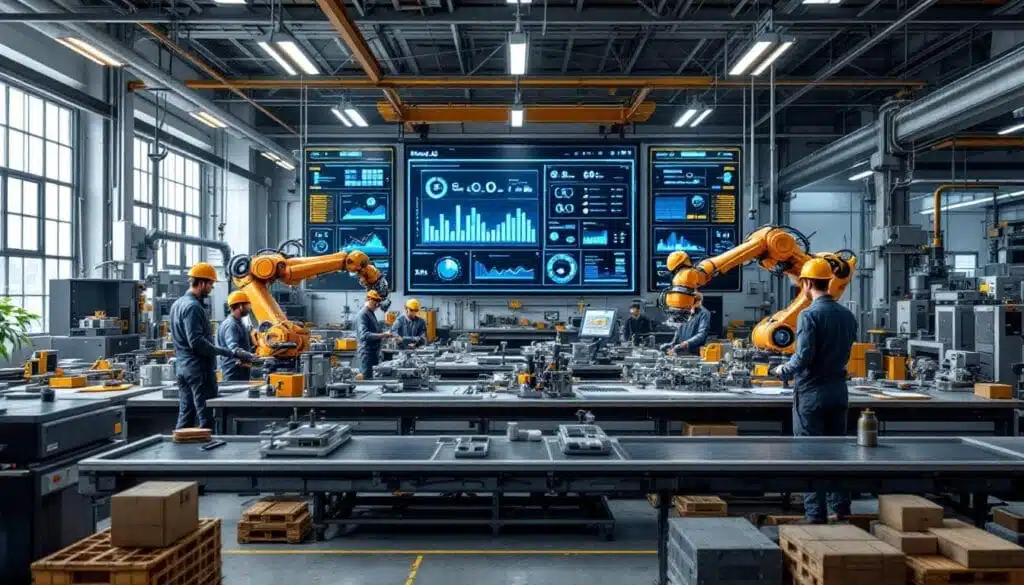Industry 4.0 is shaping a new face for the manufacturing sector in North Carolina, promising profound changes on the job scale. The integration of advanced technologies such as robotics, automation, and data analysis is redefining the required skills, announcing more attractive opportunities, and requiring significant personal investment. While the evolution occurs gradually, it opens a unprecedented window for acquiring new skills, while placing training at the center of state priorities to create a pool of talents suited to this industrial revolution.
North Carolina is preparing for an industrial revolution thanks to Industry 4.0 technologies. Here are five key points:
- New types of jobs: The demand for skills in programming, operating industrial robots, automation, and data analysis will grow, sometimes replacing certain traditional roles.
- Gradual transition: As the adoption of these technologies is costly, the transition will occur gradually, giving workers time to acquire new skills.
- Enhanced opportunities: The jobs created could be better paid, less physically demanding, and more stable thanks to more technological and competitive production.
- Significant personal investment: Workers will need to invest in their training, whether for short-term certifications or longer university programs.
- State commitment: North Carolina is fostering this change by emphasizing the development of a pool of qualified talents through various educational programs and partnerships.
Table des matières
Togglenew job opportunities with the integration of Industry 4.0
Industry 4.0, in North Carolina, heralds an era where robotics, automation, and data analysis redefine the manufacturing landscape. This revolution will require specific skills such as programming and managing automated systems. The inevitable shift towards advanced technologies suggests a major upheaval in the qualifications of workers. Adaptation will become crucial to meet the growing demand for specialized talent in cybersecurity and big data analytics tools.
a gradual change rather than an immediate one
The transition to Industry 4.0 will not be instantaneous. Replacing current equipment and training employees requires a significant investment in both time and resources. This gradual transition offers workers a window to adapt and acquire new skills. Continuous training and professional development will become essential to anticipate the future requirements of the manufacturing sector. This period of transformation allows organizations to structure a progressive development program for their workforce.
personal motivation as the key to success
Faced with these changes, workers will have to make difficult choices, from the financial risk associated with new training to important career decisions. Investing in certifications or studies to master cutting-edge fields such as robotics or data analysis is not trivial but essential. Workers must make informed decisions and fully commit to strategic learning paths.



